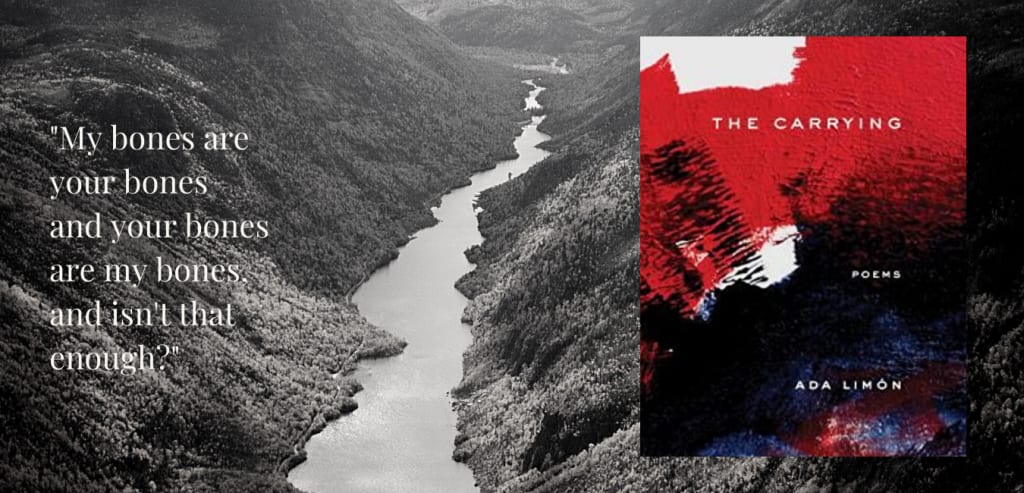The Carrying by Ada Limón Review
Limón is a master of atmosphere and mood, turning her personal, intimate poems into canvases for the despair and anxieties for our era.

Ada Limón’s poetry collection The Carrying is a roadmap book for me and the poetry I want to write. Winner of the National Book Critics Circle Award for Poetry in 2018, The Carrying shows that the personal, hyper-specific details of our lives can be portals into a shared, communal experience. Limón is a master of atmosphere and mood, and her colloquial poems center on mundane and common events in her life, while expanding into larger questions and concerns about being human. Many of the poems in this collection wrestle with Limón’s struggles with infertility, a subject that hasn’t much been explored in this medium. While crafting poems about this intimate, personal subject, Limón also captures the pervasive feeling in our culture at this moment, the dread of what’s happening to our planet, the concern about our collective future, and the fear that our culture has grown more destructive than creative. In the poem “Trying,” Limón opens with the image of her trellising tomatoes while her husband paints the basement, and she shouts to him, “I’d forgotten how much/I like to grow things” (9). She goes on to write
Later, we try
to knock me up again. We do it
in the guest room because that’s
the extent of our adventurism
in a week of violence in Florida
and France.
She ends the poem by saying, “some days I can see the point/in growing something, even if/it’s just to say I cared enough” (9). The setting and events in this poem are minor. A couple tries to get pregnant and does work around the house. Yet Limón suffuses her poetry with a collective mood, one unique to our age where we can pull out our phones and be informed of terrible violence and human tragedies all around the world. In an age of so much despair, it’s the smallest details, “fingers smelling of sex and tomato vines,” that can show our care and attention for the fraught world we live in.
In the poem “A New National Anthem,” Limón speaks directly to our shared US history, while stating that she personally “never cared for the National/Anthem. If you think about it, it’s not a good/song.” She critiques how the song is too high for most singers, how its imagery centers on bombs, and how she sang it once at homecoming and threw “even the tenacious high school band off key” (56). She’s not just critiquing the song, but the stories we tell ourselves about our country. She writes
And what of the stanzas
we never sing, the third that mentions “no refuge
could save the hireling and the slave”? Perhaps
the truth is every song of this country
has an unsung third stanza, something brutal
snaking underneath us as we blindly sing
the high notes with a beer sloshing in the stands
hoping our team wins.
Limón clarifies by writing “Don’t get wrong, I do/like the flag” which is best when “it’s humbled,/brought to its knees, clung to by someone who/has lost everything” (56). And she writes her desire for a new song, a song that is sung by the land we live on, by “the Red River Gorge, the fistful of land left/unpoisoned,” a song that says “my bones are your bones, and your bones are my bones, and isn’t that enough?”
Throughout this skillful, soulful collection, Ada Limón unearths the unsung third stanzas, by showing how even our most personal stories exist in a larger, collective history that touches us all.





Comments
There are no comments for this story
Be the first to respond and start the conversation.